Premium Only Content

Episode 1282 - Was Spinoza a Founding Father?
The teachings of Spinoza refer to the philosophical ideas and concepts developed by Baruch Spinoza, a 17th-century Dutch philosopher considered one of the most influential figures in Western philosophy. Spinoza's philosophical system is known as Spinozism or Spinoza's Ethics, which he outlined in his major work, "Ethics, Demonstrated in Geometrical Order."
Baruch Spinoza was born on November 24, 1632, in Amsterdam, Netherlands. He passed away on February 21, 1677, in The Hague, Netherlands, at the age of 44.
Received his early education at the Talmud Torah school, where he studied Hebrew and Jewish texts. Later, he attended the yeshiva (Jewish educational institution) of the Amsterdam synagogue, where he continued his studies in traditional Jewish philosophy and theology.
After leaving the yeshiva, Spinoza pursued a broader education that included secular subjects. It is believed that he received a comprehensive education in Latin, philosophy, and sciences through private tutors and independent study. He also had access to the extensive libraries of Amsterdam, which allowed him to delve into various intellectual pursuits.
While the exact details of his formal education remain unclear, it is evident that Spinoza acquired a wide-ranging knowledge of both traditional Jewish scholarship and secular philosophy, which greatly influenced his later philosophical works.
Here are some key teachings of Spinoza:
Substance Monism: Spinoza proposed that there is only one fundamental substance in the universe, which he referred to as "God" or "Nature." This substance encompasses everything that exists, and all particular things are just modes or expressions of this one substance.
Pantheism: Spinoza's view of God as the fundamental substance led to the idea of pantheism. According to Spinoza, God and Nature are identical, and the entire universe is a manifestation of God. God is not a personal being with consciousness but rather the totality of all existence.
Determinism: Spinoza believed in a deterministic universe, where everything that happens is a result of necessary and predetermined causes. He argued that all events, including human actions and choices, are ultimately determined by the laws of nature.
Rationalism: Spinoza advocated for a rational approach to understanding the world. He believed that reason and logic should be used to gain knowledge about the nature of reality. Spinoza's philosophical system is characterized by its geometrical method, in which he presents his arguments in a rigorous and deductive manner.
Ethics and Virtue: Spinoza's "Ethics" explores the nature of human ethics and how individuals can live a good and fulfilling life. He emphasized the importance of understanding one's emotions and passions, striving for intellectual freedom, and achieving a state of tranquility and contentment through reason.
Mind-Body Dualism: While Spinoza rejected the traditional mind-body dualism that separates the mind and body as distinct substances, he acknowledged the distinction between mental and physical aspects. According to him, the mind and body are two attributes of the same substance, and they are inseparable.
Freedom: Spinoza redefined the concept of freedom. He argued that true freedom does not lie in being able to act arbitrarily but in understanding the causes that determine our actions. By attaining knowledge and understanding the causal chain of events, individuals can achieve a higher degree of freedom and liberation from their passions.
Ethics and Moral Philosophy: Spinoza's ethical framework, which focused on the cultivation of reason, understanding of emotions, and the pursuit of human flourishing, contributed to moral philosophy. His emphasis on the power of knowledge and understanding in achieving ethical living influenced subsequent thinkers exploring moral theories and virtue ethics.
Political Philosophy: Spinoza's political ideas, advocating for individual freedom, religious tolerance, and the separation of church and state, were groundbreaking in his time. His views on democratic governance and the role of the state influenced later thinkers, including Enlightenment philosophers and political theorists.
Enlightenment and Liberalism: Spinoza's emphasis on individual freedom, his critique of traditional authority, and his defense of reason had a significant impact on the Enlightenment movement. His ideas contributed to the development of liberal political thought, religious tolerance, and the concepts of natural rights and constitutional government.
Existentialism: Spinoza's philosophy, with its focus on determinism, human emotions, and the search for inner freedom, has resonated with existentialist thinkers. Figures such as Friedrich Nietzsche and Gilles Deleuze have drawn on Spinoza's ideas in their exploration of human existence, power dynamics, and the nature of individual agency.
Postmodernism and Poststructuralism: Spinoza's non-dualistic understanding of the mind and body, his critique of fixed identities, and his rejection of essentialism have influenced postmodern and poststructuralist thought. Thinkers like Gilles Deleuze and Michel Foucault have engaged with Spinoza's ideas in their critiques of power, knowledge, and subjectivity.
These are some of the core teachings of Spinoza, which have had a profound impact on philosophy, ethics, and theology, influencing subsequent thinkers and schools of thought.
Spinoza's philosophy differs from Catholicism in several significant ways:
Concept of God: Spinoza's pantheistic view of God, which equates God with the entirety of nature, contrasts with the Catholic concept of God as a personal, transcendent being. In Catholicism, God is understood as a separate entity who created and governs the universe.
Divine Revelation: Catholicism places a strong emphasis on divine revelation as a source of religious truth. The Catholic Church teaches that God has revealed Himself through sacred scriptures (the Bible) and tradition. In contrast, Spinoza's philosophy relies on reason and rational inquiry rather than divine revelation to understand the nature of reality.
Dualism vs. Monism: Catholicism embraces a dualistic perspective, affirming the existence of both a material world and a spiritual realm. Human beings are seen as possessing both a physical body and an immortal soul. In contrast, Spinoza's philosophy rejects dualism and proposes a monistic view where there is only one substance (God/Nature) and the mind and body are different attributes or aspects of that substance.
Free Will and Determinism: Catholicism maintains the belief in free will, asserting that humans have the ability to make choices that can affect their salvation. Spinoza, however, espouses a deterministic worldview, arguing that all events, including human actions, are causally determined by the laws of nature. According to Spinoza, freedom lies in understanding and accepting the necessary causes of our actions rather than in having independent free will.
Original Sin and Redemption: Catholicism teaches the doctrine of original sin, which asserts that all humans inherit the sin of Adam and Eve and are in need of redemption through Jesus Christ. Spinoza's philosophy does not incorporate such theological concepts, as he focused more on understanding the nature of reality and the ethical pursuit of a good life.
Authority and Church Hierarchy: Catholicism has a hierarchical structure with the Pope as the head of the Church and an organized system of clergy and ecclesiastical authority. Spinoza's philosophy does not uphold the authority of religious institutions or rely on a hierarchical structure for understanding and seeking truth. Instead, he emphasizes individual reason and intellectual freedom.
It's important to note that Spinoza's philosophy was considered highly controversial and was condemned by the Catholic Church during his lifetime. His ideas challenged traditional religious and theological doctrines, and as a result, his works were placed on the Catholic Church's Index of Forbidden Books
-
 LIVE
LIVE
vivafrei
41 minutes agoELECTIONS CANADA RESULTS LIVE STREAM WITH VIVA COMMENTARY!!!
2,861 watching -
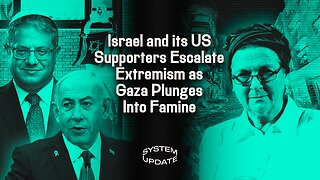 1:33:55
1:33:55
Glenn Greenwald
6 hours agoGaza Starves, Pro-Israel Propagandists Escalate Extremist Rhetoric and Actions | System Update #444
47.8K48 -
 LIVE
LIVE
megimu32
2 hours agoON THE SUBJECT: This Timeline is Broken: Epstein, Aliens & Summer Anthems
176 watching -
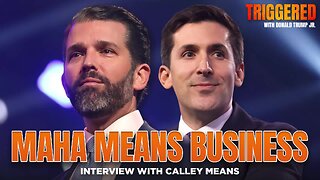 1:02:42
1:02:42
Donald Trump Jr.
7 hours agoMAHA Means Business, Interview with Calley Means | TRIGGERED Ep.237
87.1K41 -
 57:50
57:50
BonginoReport
4 hours agoFAKE News In A Downward Ratings Spiral - Nightly Scroll w/ Hayley Caronia (Ep.36)
55.6K28 -
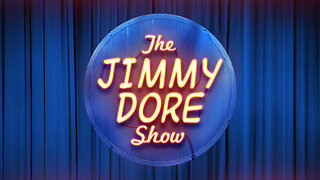 LIVE
LIVE
The Jimmy Dore Show
3 hours agoTrump Tariffs Working As Planned? Trump Open to Raising Taxes on the Rich! w/ Stephen Gardner
10,776 watching -
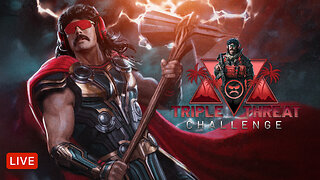 7:58:02
7:58:02
Dr Disrespect
9 hours ago🔴LIVE - DR DISRESPECT - TRIPLE THREAT CHALLENGE - WZ, PUBG, FORTNITE
137K11 -
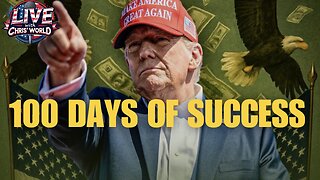 LIVE
LIVE
LIVE WITH CHRIS'WORLD
6 hours agoLIVE WITH CHRIS’WORLD - HERE IS THE KEY TO 100 DAYS OF SUCCESS!
178 watching -
 1:54:45
1:54:45
Wayne Allyn Root | The Root Reaction
3 hours agoThe Root Reaction | 28 April 2025
13.5K1 -
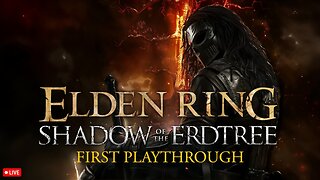 LIVE
LIVE
GrimmHollywood
8 hours ago🔴LIVE • GRIMM HOLLYWOOD • SHADOW OF THE ERDTREE FIRST PLAYTHROUGH • PART 1
77 watching